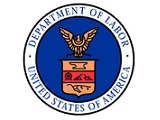Entitled to FMLA Leave — Or Was There Insufficient Notice?
Post Views 8A woman diagnosed with carpal tunnel syndrome, near the end of her short-term disability benefits, was fired. She sued, claiming that her employer should have offered her FMLA leave (Family and Medical Leave Act). Her employer, however, contended that she did not give the required 30-days’ notice.
The woman worked at the Northeast Mississippi Electric Power Association as a cashier. She began experiencing pain and swelling in her hands and arms, and the pain was severe enough for her supervisor to instruct her to see a doctor. She saw a physician who determined that she had carpal tunnel syndrome and referred her to another doctor, who prescribed medication. When she called back to complain that her medication was ineffective, the same doctor said that she did not have carpal tunnel but rather a pre-existing bone disease. A workers’ compensation claim was subsequently denied due to the second diagnosis.
A third physician diagnosed her with bilateral arm pain and spasms, and she was approved for 13 weeks of short-term disability leave. She submitted disability forms to the secretary of the general manager, who handled short-term disability benefits and FMLA leave. Because she was disputing the denial of the workers’ comp, she was referred to another doctor, who released her to light duty restrictions. The next day, she returned to work but could not lift her left arm. She spoke with the doctor’s nurse, who said that the physician could not change her work restrictions.
She stayed on short-term disability leave and saw more doctors, diagnosed again with carpal tunnel, as well as upper nerve entrapment. When her leave was nearly finished, she received a termination letter, saying that there was no longer a position available to her. She responded by filing a lawsuit, alleging a violation of the FMLA. The district court granted summary judgment in favor the defendants, believing that the woman had not provided sufficient notice that she was entitled to FMLA leave due to her condition.

Appellate judges saw things differently. They believed that, as the secretary testified that she was responsible for FMLA leave and that the employee would have been eligible, the plaintiff’s discussions with the secretary could be construed as an “adequate request.” Consequently a reasonable jury could conclude that the woman would have pursued FMLA leave had the secretary made further inquiries and offered FMLA to her.
The appeals court reversed the district court’s grant of summary judgment and remanded the case for further proceedings.
Entitled to FMLA Leave -- Or Was There Insufficient Notice? by Harrison Barnes



 How to Deal with Negative Employees
How to Deal with Negative Employees  Is Music in the Office Appropriate?
Is Music in the Office Appropriate?  5 Ways You Can Hire and Keep the Best Employees for Your Company
5 Ways You Can Hire and Keep the Best Employees for Your Company  What Does It Actually Cost to Hire a New Employee?
What Does It Actually Cost to Hire a New Employee?  Fake FMLA Requests Can Be Overcome
Fake FMLA Requests Can Be Overcome  Generation Y is Changing Corporate America
Generation Y is Changing Corporate America  Telecommuting Doesn’t Work for All Jobs
Telecommuting Doesn’t Work for All Jobs